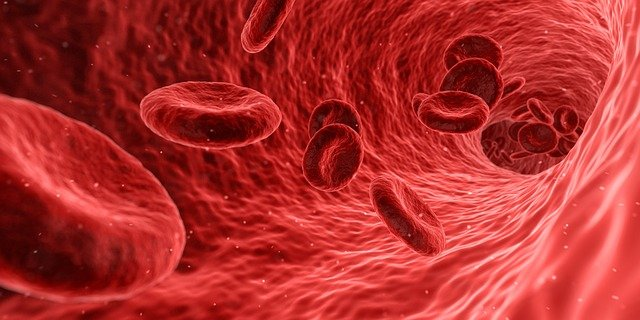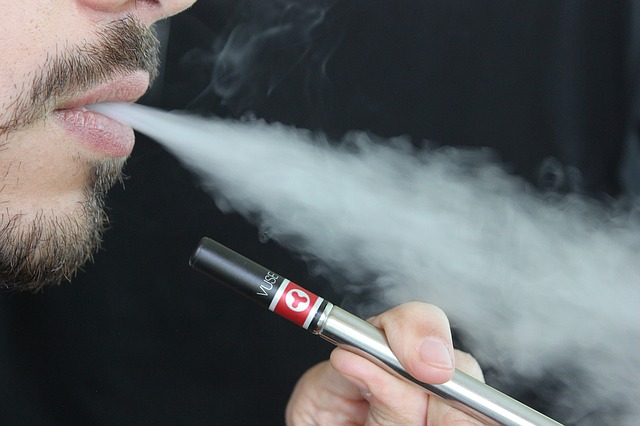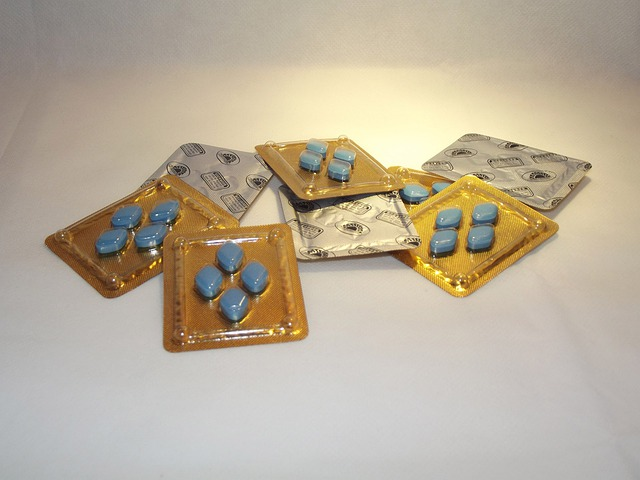Is your vaping habit harming your performance in the bedroom?
Recent studies have some men concerned about their sexual health, outlining a strong correlation between daily vaping habits and an increased likelihood of erectile dysfunction (ED). Research suggests that men who vape daily are twice as likely to report erectile dysfunction, when compared to those who had never vaped.
While these numbers may be alarming, doctors say that e cigarette users are likely to recover from the damage caused by vaping, after nicotine is ceased.
How common is erectile dysfunction?
While it may not be the leading topic of conversation when you’re down at the pub, erectile dysfunction is more common than you think.
Throughout the years, data collection has yielded varied results surrounding the prevalence of erectile dysfunction. In 2019, however, a study published record numbers that revealed more than 50% of men are likely to experience ED throughout some stage of their life.
Men between the ages of 40 and 70 report experiencing erectile dysfunction at a higher rate than younger generations, with an increased risk factor of up to 15% for older men.

Although a variety of health problems have always been associated with aging, including the hinderance of sexual performance, more recent studies have shown an increase in the number of younger men now experience difficulties with impotence (or ED).
With advancements in technology, such as the electronic cigarette, now flooding international markets, research is being conducted around the globe to identify any possible risk factors or negative correlations involved with these new products.
What is vaping?
Unlike traditional cigarette smoke, e cigarettes are activated by a battery operated system, whereby the encapsulated liquid is heated, vaporised and inhaled by the user. This vapor generally consists of various flavours and chemicals, often coinciding with nicotine.
The dosage of nicotine delivered through the vaporisation process is highly dependent on a number of determining factors. By understanding how much nicotine you are ingesting, you’ll have the knowledge to limit your intake, with the realistic and ultimate goal of complete vaping or smoking cessation.
Vaping devices and liquid nicotine
Vaping devices are available in both mouth to lung (MTL) and direct to lung (DTL) styles, with MTL being the most common choice for ex smokers, who have chosen to use vaping as an aid to stop smoking.

The liquid itself is also available in a range of varieties, including freebase solutions and nicotine salts. Within the selection of e liquids, you’ll find nicotine percentages that different strengths per solution, while there are even a number of products that are available in nicotine free options.
Why is vaping associated with erectile dysfunction?
When we understand the effects of nicotine on the body’s circulatory system, it’s easy to see why issues with erectile function are associated with e cigarette use.

Decreased blood flow
Nicotine tightens blood vessels, which can often lead to restricted circulation throughout many areas of the body, including the penis. When the body loses the ability to naturally dilate and enlarge arteries, this can lead to erectile dysfunction.
Low testosterone
Alongside the issue of constricted blood flow, a health study published in the American Journal of Preventative Medicine has also identified a link between nicotine, and other chemicals found within vaping products, and decreased testosterone levels – another main cause of ED.
While any use of a nicotine product has the potential to cause a variety of health issues, frequent or long-time users are more likely to experience a negative impact on their overall health, resulting in blood pressure concerns, issues with sexual performance and cardiovascular disease.
Nicotine strengths
A growing concern surrounding the relationship between vaping and ED is that many users are uncertain of just how much nicotine they are ingesting with each puff. The greater the amount of nicotine being ingested, the higher the risk of restricted blood circulation and erectile dysfunction issues.

While there are ways to calculate what percentage of nicotine is best for your vaping needs, this can be a complex task. The contributing factors of higher nicotine levels featured in nicotine salts, compared to that of freebase liquids, and delightful flavours profiles that mask the throat hit feeling so synonymous with smoking, mean it isn’t uncommon for vapers to be unaware of just how much nicotine they are really inhaling.
Vaping numbers grow in Australia
When it comes down to people vaping in Australia, statistics from the Alcohol and Drug Foundation (ADF) show that the number of current smokers, who have also tried e cigarettes, has increased from 49% to 64% since 2016.

As the popularity of e cigarettes continues to increase, it’s important that we better understand our nicotine habits and what options are available to assist in decreasing our usage and improving men’s health Australia-wide.
Vaping, cigarette smoking and erectile dysfunction
While new research has revealed a correlation between vaping and an increased likelihood of ED, the data is more directly related to the ingestion of nicotine leading to adverse symptoms in men’s sexual health. The bottom line is, whether you vape, smoke cigarettes or even over-use of nicotine patches you may be at a higher risk of sexual dysfunction.
Before you start to panic, here’s the good news – with professional medical advice, some positive lifestyle changes and the right treatment plan, the effects of ED from nicotine consumption can be managed and likely reversed.
Your road to recovery starts here
As vaping involves the direct inhalation of nicotine, this can have an immediate vasoconstrictor effect on the body, often resulting in restricted blood flow to the penis, which can cause difficulties in getting an erection.
While this constriction of blood vessels can pose a problem for your sexual health, the vasoconstrictor effect is short term and, with time, the effect of nicotine should dissipate with no long term damage.
Quitting vaping or smoking cigarettes
Taking the step to quit smoking or vaping is a milestone in itself. While both have the potential to negatively impact your lifestyle or worsen pre-existing health conditions, chemicals and other drugs found within tobacco have been proven to cause long term damage to cardiovascular health and the cardiocirculatory system. In combination with the short term effects of nicotine, the addition of tobacco puts heavy smokers at a higher risk of the ongoing worsening of erectile dysfunction.

While the decision to quit vaping does not come without challenges, studies have shown a significant improvement in ED among many reformed vapers.
To avoid relapsing, or even returning to regular cigarettes, be sure to create a treatment plan with your doctor, to minimise the physical and emotional symptoms of nicotine withdrawal.
Nicotine replacement therapies
Although quitting vaping entirely may be the ultimate goal in ED recovery, going cold turkey can seem impossible at times. Nicotine Replacement Therapy (NRT) allows users to access low doses of the substance, to ease withdrawal symptoms and make the transition more manageable. NRT supplements are available in a range of forms, from nasal sprays and patches, to gums and inhalers.
Preventive and prescription medicine
Through a consultation with a trusted medical professional, you can discover preventive medicine to improve your overall wellbeing, while also decreasing the likelihood of future development of other risk factors associated with vaping and smoking, such as heart disease and respiratory complications.
The most common first-line therapy for ED recovery is the prescription of a PDE5 inhibitor. Backed by more than 20 years of extensive medical and peer reviewed studies, statistics show that 94% of participants reported satisfaction with the effectiveness of this treatment on their erections.

While oral ED medicines are considered safe and extremely effective, it’s important to understand that certain medications may not be the right fit for everyone. An honest and open discussion with your doctor will allow you to ask any questions you may have and take steps to further improve your experience.
Lifestyle changes
With constricted blood vessels and low testosterone identified as the two main health risks associated with e cigarettes and ED, it’s important to understand that simple lifestyle changes can greatly improve your chances of achieving a positive experience with sexual intercourse.

There are a number of natural ways to alleviate the negative health effects of low testosterone, including vitamin and mineral supplements, eating a protein-rich diet, minimising stress and cortisol levels, regular exercise, and of course, quitting smoking and vaping.
Emotional and psychological support
Whether you’re struggling with the thought of quitting nicotine cold turkey or aren’t too sure about the best way to start a conversation regarding your sexual health, it’s important to remember that you’re not alone.
Erectile dysfunction affects millions of Aussie men – but it doesn’t have to be the downer in your sex life too. Research shows that a noticeable improvement can be seen in the body’s circulatory system in as little as 2-10 weeks after quitting smoking or vaping, which could assist in reducing the symptoms of ED.
Let’s get your health sorted!
Worried about the effects of nicotine on your sexual health, or need some help to quit smoking? We’ve got you covered! Start the convo with a Stagger doctor today.
